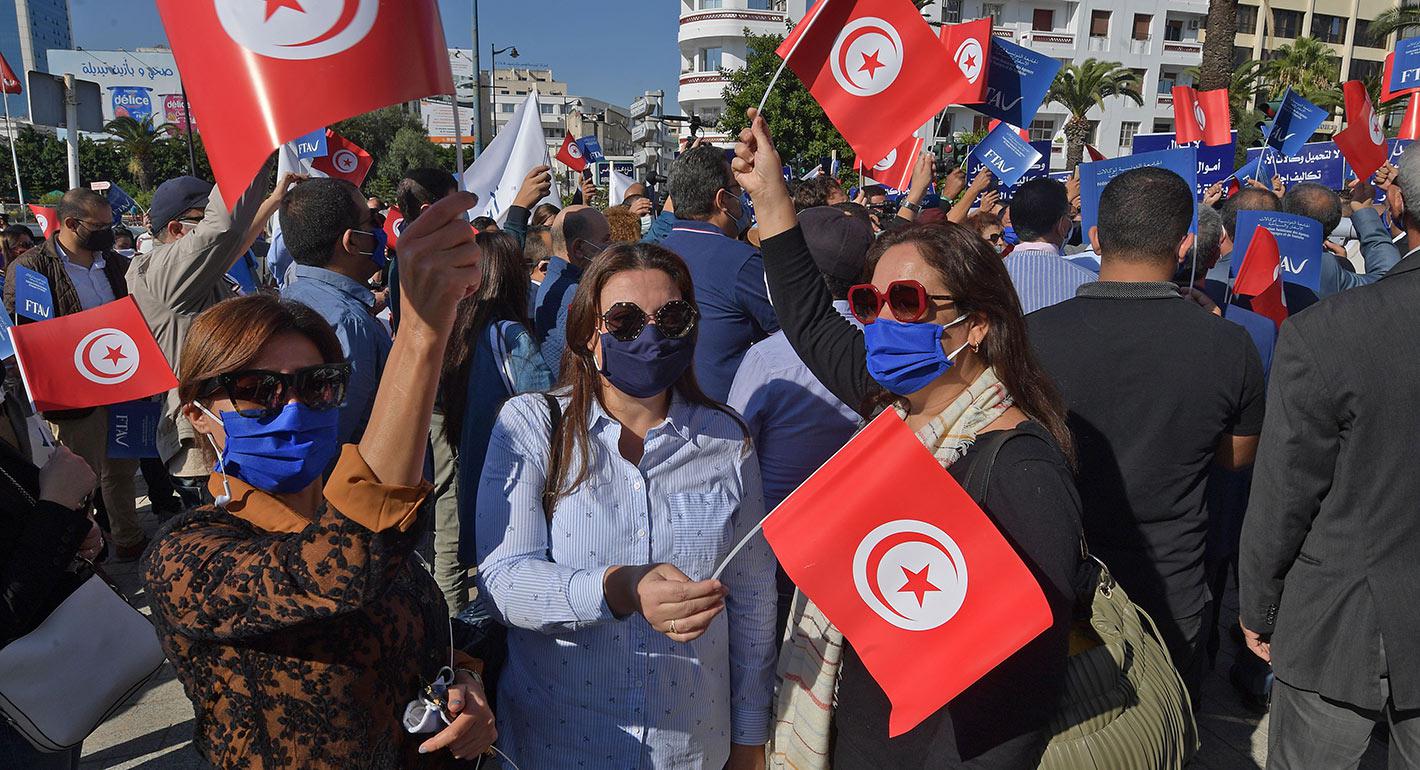Ragaa, like most Tunisian women, worked under dire conditions. She was paid starkly low wages, lacked economic and social security, and, for fear of losing her job, silently endured physical and emotional abuse.
The Covid-19 pandemic, however, had a more devastating impact on her life than the hardships she was forced to survive thus far.
Working in the tourism industry, Ragaa and her husband were among the thousands who suffered the repercussions of the long government mandated lockdown on this dynamic sector. Numerous businesses were shut down permanently, and scores of underprivileged workers were left completely exposed. Both husband and wife lost their jobs and after months of trying and failing to secure employment, the stress finally took its toll on the couple. The husband, weighed by his frustration and shame, deserted his family and left his wife to shoulder the massive responsibility of trying to save her family from inevitable destitution.
“He abandoned me,” Ragaa says desolately.
Ragaa, being a mother, couldn’t abandon her children like her husband did – she couldn’t run away. She stayed and tried to be both parents, but like all women, who make up 70 percent of the Tunisian workforce, Ragaa was in an exacerbated situation that only got worse every day.
Many small business owners found themselves drowning in this painful new reality, so they reached out to their government to throw them a lifeline, only to be turned away while their cries for help fell on deaf ears.
When her children cried from hunger, Ragaa would panic, “I’d go out in the streets, crying, like a crazy person.” In moments like these, nothing could ease her pain. She shares whatever little donations she gets with her neighbor, who also suffers from the same bleak circumstances. “We have to look out for each other, our government certainly doesn’t,” says Ragaa.
The Tunisian government, too busy enforcing precautionary measures, has become oblivious to the plight of a large group of people who were severely affected by the pandemic. While the initial lockdown delayed infections and protected people’s lives, it hit poor Tunisian laborers and craftsmen, and other vulnerable groups, leaving them to face a fate grimmer than death.
A documentary, telling the story of Ragaa through the lens of the camera.


.jpg)



